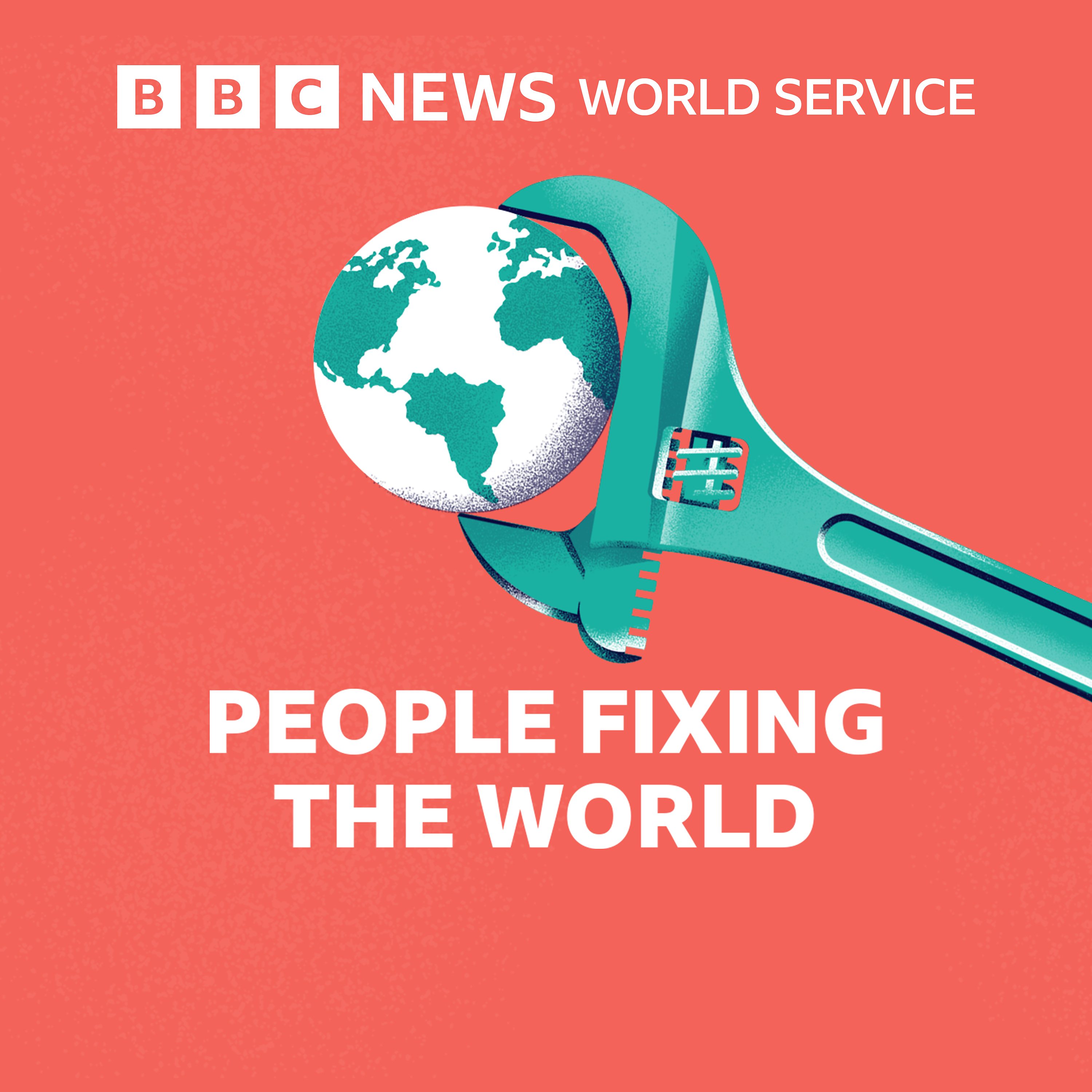

People Fixing the World
BBC World Service
Brilliant solutions to the world’s problems. We meet people with ideas to make the world a better place and investigate whether they work.
Episodes
Mentioned books

Oct 24, 2023 • 24min
Sea cucumbers fixing the world
Meet the oceans’ unsung hero - the humble sea cucumber. An animal in the same family as starfish that looks like a lumpy sausage and lives on the ocean floor could help with some of the impact of global warming, pollution from fish farms and damage from the fishing industry that are threatening some of the oceans most important ecosystems.We meet the Australian researchers using drones to count the cucumbers to understand how their poo is helping coral reefs. And in Madagascar, we speak to the local communities which are learning to sustainably farm the creature, protecting the seas and increasing their income along the way.Repeat - originally broadcast in February 2023.Presenter: Myra Anubi
Producer/Reporter: Lizzy McNeill
Series producer: Tom Colls
Sound mix: Annie Gardiner
Editor: Penny MurphyEmail: peoplefixingtheworld@bbc.co.uk(Image: Sea cucumbers. Credit: Getty Images)

4 snips
Oct 17, 2023 • 26min
Stopping suicide
A group in Limerick patrols the River Shannon to speak with people in despair. US states consider a do-not-sell list for firearms to prevent suicides. Personal stories highlight the impact of restricting access to guns. The podcast challenges misconceptions about suicide and offers resources for help.

Oct 10, 2023 • 24min
AI for good
Explore the positive impact of AI, from therapy chatbots to reducing infant mortality in Africa. Discover how AI is being used to improve vaccination rates and assist therapists in delivering exercises to patients. The podcast also highlights the importance of security and human oversight in the future of AI.

Oct 3, 2023 • 24min
Coconuts fixing the world
We eat millions of tonnes of coconuts every year - with the dense white flesh of the fruit making a tasty snack and the juice a refreshing drink.But the inedible husk and shell go to waste – and it’s this part that innovators and entrepreneurs around the world are now putting to work to solve a whole host of problems.In Sierra Leone, a personal tragedy was the catalyst for young entrepreneur Alhaji Siraj Bah to start a business which takes the coconut husk and turns it into an alternative to charcoal - which is good for the forests and could potentially save lives too.And we’ll hear about the start-up using coconut to keep fish, fruit and vegetables cool for longer, without using any plastic.Presenter: Myra Anubi
Reporter: Eric Mugaju
Producer: Craig Langran
Series producer: Tom Colls
Sound mix: Gareth Jones
Editor: Penny MurphyEmail: peoplefixingtheworld@bbc.co.ukImage: A coconut (Getty Images)

Sep 26, 2023 • 24min
Surviving earthquakes
Earthquakes strike suddenly, leaving death and destruction in their wake. But around the world, people are trying to do what they can to make them less deadly.We hear from Haiti, where a seismometer developed for hobbyists is now being used by citizens to build the country’s first earthquake risk map.Over in Zurich, we meet the scientist using tennis balls to buffer buildings in poor countries from shockwaves. And in Indonesia, we find out how a Virtual Reality game is helping students prepare for terrifying tremors.Presenter: Myra Anubi
Reporter: Claire Bates
Series producer: Tom Colls
Sound mix: Hal Haines
Editor: Penny MurphyEmail: peoplefixingtheworld@bbc.co.ukImage: A woman in Haiti holding a Raspberry Shake (Credit: Eric Calais)

Sep 19, 2023 • 24min
Shockwaves for the heart
Discover the potential of shockwave therapy in regenerating heart tissue as a breakthrough treatment for cardiovascular diseases. Explore the scientific mechanisms behind shockwaves and their applications in medicine. Delve into the use of shockwaves in heart operations and their benefits in regeneration. Learn about the pioneer in the field and hear from a patient who has undergone shockwave therapy. Explore future applications of shockwave therapy in medicine, including treating rectal dysfunction and athletic problems, and cellulite treatment.

Sep 12, 2023 • 24min
Genetic problem-solving
From crops that grow faster to rice that could stop children going blind - the world is full of genetically modified products waiting to come onto the market.Genetic modification techniques in plants have huge problem-solving potential, but are often clouded in controversy. Most scientists say GM food is safe, yet some consumers and environmental campaigners remain unconvinced.This week we look at the potential, and the controversy, in this futuristic field.Presenter: Myra Anubi
Reporter: Lizzy McNeill
Series producer: Tom Colls
Sound mix: Annie Gardiner
Editor: Penny MurphyEmail: peoplefixingtheworld@bbc.co.ukImage: Illustration of a strand of DNA (Getty Images)

Sep 5, 2023 • 24min
Female farmers fighting sexism
A podcast explores the challenges faced by female farmers and initiatives to support them. It highlights an app in Bangladesh that helps women sell their produce anonymously to overcome sexism. It also discusses programs in Peru and Bangladesh addressing gender inequality in agriculture. The podcast introduces vertical sack farming as a solution for women without land and explores the benefits of virtual fencing in farming.

Aug 1, 2023 • 25min
Surprising solar
The podcast explores alternative ways to obtain solar energy, such as using solar panels as building materials and placing them on car park canopies. It also discusses the concept of floating solar panels in Norway and the potential of combining solar panels with fields of crops. Additionally, the hosts reflect on Memory Well, a company that creates patient biographies.

Jul 25, 2023 • 25min
The bubble barrier cleaning up rivers
Dutch inventors use a bubble barrier to remove plastic from water, sound is used to attract fish back to damaged coral reefs, a hand-cranked washing machine makes laundry easier for impoverished women


